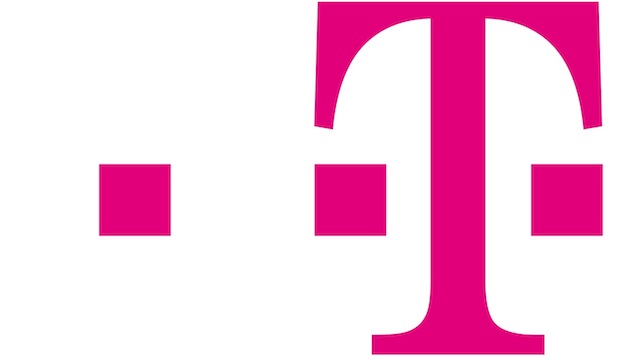Host
W3C gratefully acknowledges Deutsche Telekom, for hosting this workshop.
Thanks also to the Mozilla Foundation for their Support
W3C also thankfully acknowledges the STREWS project and the Practice projectfor supporting this workshop
Co-Chairs:
Important things
Registration is open until 18 November: Please register using the registration form
7 November 2014:
Program and position papers posted on the workshop website
Logistics: The logistics page is now available
20-21 November 2014:
Workshop
Minutes
2014-11-26: The Minutes of the Workshop are published:
Agenda
Thursday 20 November 2014
| Time | Event | |
|---|---|---|
| 09:00 |
Welcome by Dr. Christoph Peylo, T-Labs Welcome by Dr. Claus-Dieter Ulmer, Konzerndatenschutzbeauftragter der Deutschen Telekom |
|
| 09:10 | Welcome by the Chairs |
|
| Framing the issue | ||
| 09:20 | Robert Brauer, Dominic Battré: Google Privacy & Security interfaces |
|
| 09:35 | Haakon Flage Bratsberg: Opera Privacy & Security interfaces |
|
| 09:55 | ||
| 10:10 | Coffee break | |
| 10:40 | Frederik Braun: Firefox Privacy & Security interfaces |
|
| 10:55 | Sören Preibusch: Eye-tracking. Privacy interfaces for the next ubiquitous modality |
|
| 11:10 | Discussion about Framing & questions |
|
| 12:00 | Lunch | |
| Privacy Assessment | ||
| 13:15 | Christine Runnegar: The Privacy Interest Group |
|
| Informing the user | ||
| 13:40 | Gökhan Bal, Kai Rannenberg: User Control Mechanisms for Privacy Protection Should Go Hand in Hand with Privacy-Consequence Information: The Case of Smartphone Apps |
|
| 14:00 | Frederick Hirsch: User choice vs. Protecting users by default |
|
| 14:20 | Alina Hua, Dave Huseby Martin Kurze, Frank Wagner: future of mobile privacy; improved control over privacy protection |
|
| 14:45 | Coffee break | |
| 15:15 | Michele Vescovi, Corrado Moiso, Fabrizio Antonelli, Mattia Pasolli, Christos Perentis: Building an Eco-System of Trusted Services through user Transparency, Control and Awareness on Personal Data Privacy |
|
| 15:35 | Rigo Wenning: Trust & Usability on the Web, a Social/Legal perspective |
|
| 15:50 - 16:50 |
Discussion | |
| 19:30 | Social-Event | |
Friday 21 November 2014
| Time | Event |
|---|---|
| Social & Legal | |
| 09:30 | Istvan Lajtos: GSMA Privacy Guidelines |
| 09:50 | Reuben Binns: Standardised Privacy Policies: A Post-mortem and Promising Developments |
| 10:10 | Frederik Borgesius: Empowerment and Protection |
| 11:30 | Discussion on Social & Legal |
| 11:00 | Coffee break |
| New Architectures | |
| 11:30 | Carlo von Lynx: A Web in Respect of the Constitution is Possible |
| 11:50 | Volker Birk: p≡p position paper |
| 12:10 | Ero Balsa: Why Can’t Online Social Networks Encrypt? |
| 12:30 | Discussion on New Architectures |
| 13:15 | Lunch |
| 14:15 |
Discussion on next steps |
| 16:00 | End of Workshop |
Participants
Firstname |
Lastname |
Company |
|---|---|---|
Chaals |
McCathieNevile |
Yandex |
Sebastian |
Amorim |
|
Gökhan |
Bal |
Goethe University Frankfurt |
Ero |
Balsa |
COSIC, KU Leuven |
Dominic |
Battré |
|
Reuben |
Binns |
University of Southampton |
Volker |
Birk |
p≡p |
Frederick |
Borgesius |
University of Amsterdam |
Karima |
Boudaoud |
Laboratoire I3S - CNRS/UNS |
Haakon |
Bratsberg |
Opera |
Robert |
Brauer |
|
Frederik |
Braun |
Mozilla |
Christian |
Fuhrhop |
Fraunhofer FOKUS |
Frederick |
Hirsch |
Nokia |
Alina |
Hua |
Mozilla |
Meiko |
Jensen |
Independent Centre for Privacy Protection Schleswig-Holstein |
Kristina N. |
Kjerstad |
Norwegian Ministry of Local Government and Modernisation |
Andreas |
Kuehne |
trustable Ltd. |
Martin |
Kurze |
T-Labs, Deutsche Telekom |
Istvan |
Lajtos |
GSMA |
Johannes |
Landstorfer |
IXDS |
Axel |
Nennker |
T-Labs |
Christos |
Perentis |
FBK / SKIL Lab - Telecom Italia |
Christoph |
Peylo |
T-Labs |
Marta |
Piekarska |
T-Labs/TU Berlin |
Sören |
Preibusch |
Microsoft Research |
Alexander |
Raake |
T-Labs/TU Berlin |
Angelo |
Reale |
krn.cc |
Christine |
Runnegar |
Internet Society |
Matthias |
Schunter |
Intel |
David |
Singer |
Apple Inc. |
Markus |
Tschersich |
Goethe University Frankfurt |
Claus-Dieter |
Ulmer |
Deutsche Telekom |
Robert |
van Eijk |
Leiden University |
Sigbjørn |
Vik |
Opera |
Carlo |
von Loesch |
youbroketheinternet |
Frank |
Wagner |
Deutsche Telekom |
Rigo |
Wenning |
W3C |
Ming |
Yin |
T-Labs |
Yun |
Zhou |
T-Labs/TU Berlin |
Questions? Rigo Wenning <rigo@w3.org>


